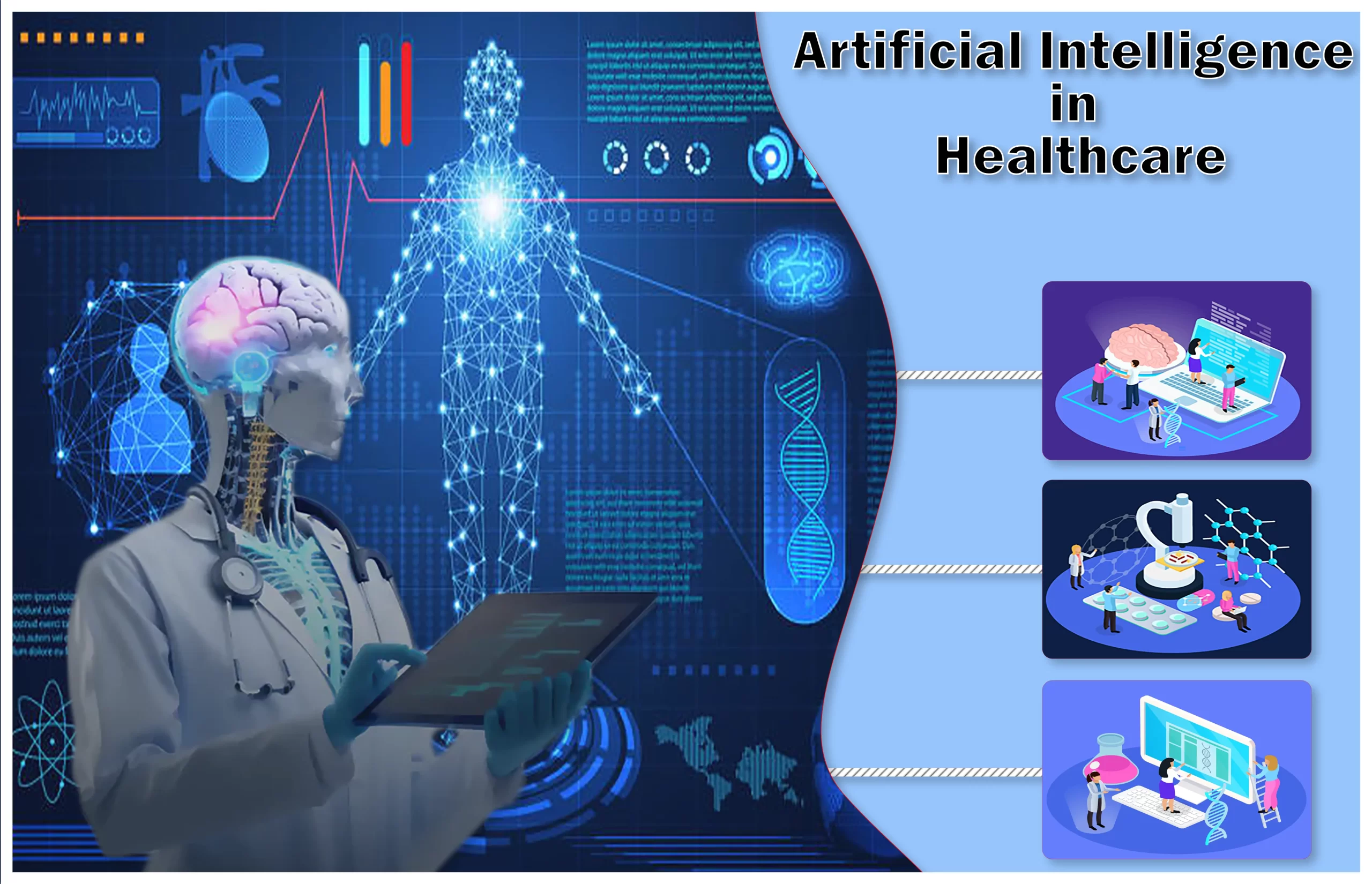The healthcare landscape is undergoing a significant revolution driven by the relentless advancement of artificial intelligence (AI). No longer a sci-fi concept, AI is rapidly integrating into medical practice, promising to transform patient care in ways we can only begin to imagine. From precise disease diagnosis to personalized treatment plans, AI’s potential for unlocking groundbreaking advancements in healthcare is undeniable.
This article delves into the transformative power of Artificial Intelligence in healthcare, exploring its current applications, future possibilities, and the immense benefits it holds for patients and healthcare providers alike.
AI’s Eagle Eye on Health
One of the most exciting applications of AI lies in diagnostics. By analyzing vast amounts of medical data, including medical images, lab reports, and patient history, AI algorithms can identify patterns and anomalies that might escape the human eye. This translates to earlier and more accurate diagnoses, enabling timely intervention and improved patient outcomes.
For example, AI-powered systems are being trained to detect cancerous cells in mammograms with impressive accuracy, surpassing the performance of even the most skilled radiologists. Similarly, AI algorithms are showing promise in early-stage diagnosis of neurodegenerative diseases like Alzheimer’s and Parkinson’s, offering a glimmer of hope for improved management and potential cures. We only hope that the future of AI in healthcare will take the positives to the next level from here.
Personalized treatment plans – A patient-centric approach:
Beyond diagnosis, AI is poised to revolutionize the way we treat diseases. By factoring in a patient’s unique genetic makeup, medical history, and lifestyle, AI can generate personalized treatment plans tailored to their specific needs and vulnerabilities. This shift from a one-size-fits-all approach to a customized treatment strategy holds immense promise for improved efficacy and reduced side effects.
Imagine a future where cancer patients receive targeted therapies based on the molecular profile of their tumors, maximizing the effectiveness of treatment while minimizing harm. Or, envision a scenario where diabetic patients receive personalized insulin dosing recommendations based on their real-time blood sugar levels, optimizing control and preventing complications.
Advanced AI healthcare – The frontiers of innovation:

The applications of Artificial Intelligence in healthcare extend far beyond diagnostics and personalized treatment. AI-powered robots are assisting surgeons in complex procedures, improving precision and minimizing downtime for patients. Virtual assistants are offering on-demand medical advice and support, reducing healthcare disparities and improving accessibility.
Furthermore, Advanced AI Healthcare is allowing drug discovery and development, analyzing vast datasets to identify promising targets and accelerate the search for new treatments. The potential of AI in healthcare transcends the boundaries of physical well-being; AI-powered chatbots are offering mental health support, assisting patients with anxiety and depression, and making therapy more accessible to those who might otherwise go untreated.
Great Advantages – A Positive Outcome for Patients and Providers
The benefits of AI in healthcare are multi-faceted and far-reaching. AI promises earlier diagnoses, more effective treatments, and improved overall health outcomes for patients. It empowers patients to take a more active role in their healthcare journey, providing access to personalized information and resources.
For healthcare providers, AI alleviates administrative burdens, frees up valuable time for patient interaction, and enhances clinical decision-making. It streamlines workflows, optimizes resource allocation, and enables data-driven healthcare management. Ultimately, AI paves the way for a more efficient, accessible, and patient-centric healthcare system.
The future of AI in healthcare:
The future of AI in healthcare is filled with boundless possibilities. As AI technology evolves, we can expect even more transformative innovations that will further redefine medical practice. From gene editing therapies to personalized vaccines, the potential of AI to unlock breakthroughs in healthcare is truly limitless.
However, it is crucial to acknowledge the challenges that accompany this technological revolution. Ethical considerations, data privacy concerns, and the potential for bias in AI algorithms need to be addressed with utmost seriousness. We must ensure that AI serves as a tool to empower and benefit all, not exacerbate existing inequalities and injustices.
Conclusion:
AI is not just transforming healthcare; it is redefining our understanding of health and well-being. As we embrace this transformative power, we must remember that it is not a replacement for humans. The benefits of AI in healthcare should be accepted with open arms, keeping in mind the hazards it also carries.

